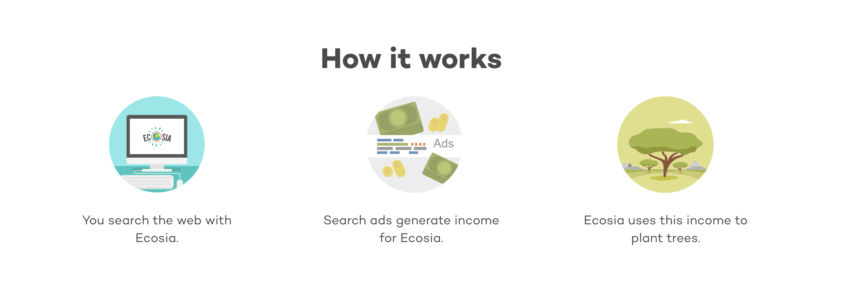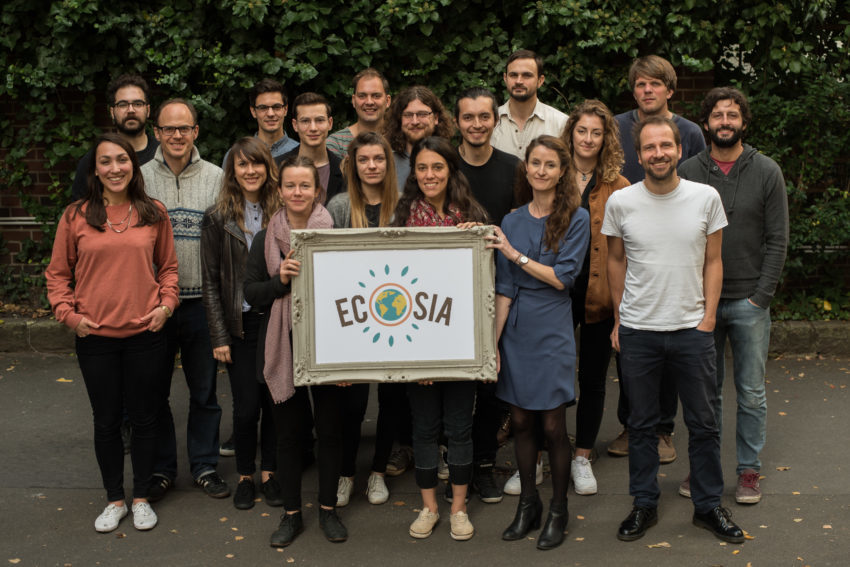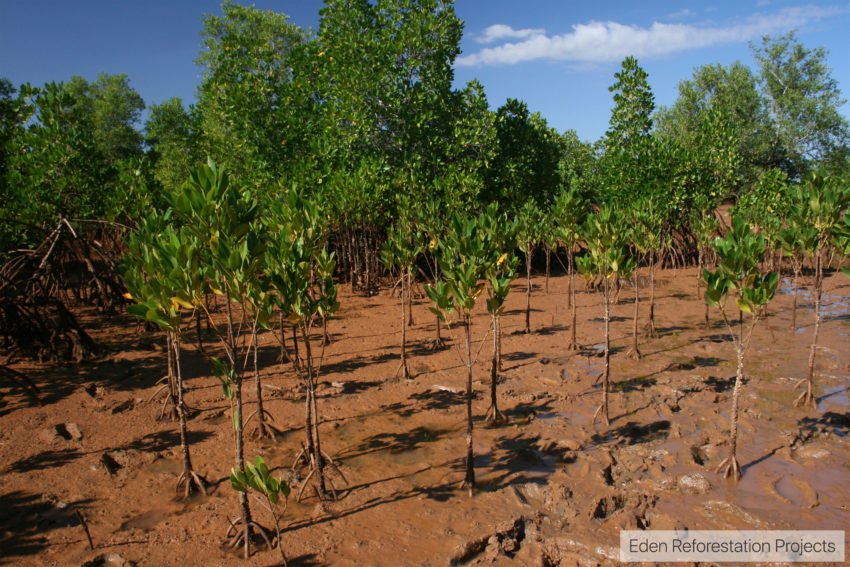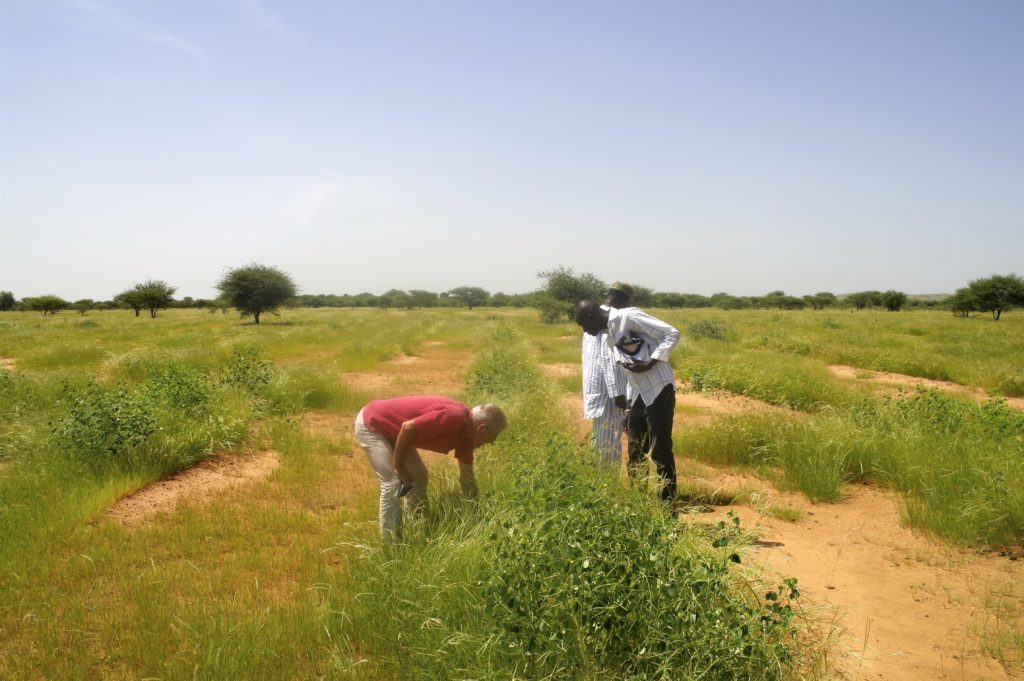Advertisements are one of the primary sources of income for search engines: when a user looks into search results, the search engine will make money if the person clicks on the ads. Unfortunately, these ads can also affect the quality of search results by showing up first the webpages of the companies willing to pay that extra money to appear on top of the list.
Luckily, not all search engines are the same. Ecosia, the new sustainable and innovative search engine is fairly different from what described above. Ecosia does show advertisements, but by clicking on them users are able to support a very important cause. It is actually advisable, if using Ecosia, to click on the sponsored ads at least a couple of times per day.
To find out which cause Ecosia is supporting, to learn about its story, and to see what they think about sustainability, today we are speaking with Jacey Bingler, USA Country Manager for Ecosia.
Who are the founders of Ecosia and what is the story of this company?
Jacey Bingler: The founder of Ecosia is Christian Kroll, an expert of business and tech. He came up with this idea in 2009: at that time, he was well aware that search engines like Google, Bing or Yahoo make tons of money with online advertising and he wondered if that money could be used for something else. He had in mind something more altruistic, supportive to a good cause, rather than just making profits. He thought that with usual business models the money made from online ads would only be reinvested within the same company and would not benefit anyone externally.
After finishing his studies, Christian soon realized that one of the biggest threats to our planet is deforestation. He also understood it is possible to make positive impact by planting a large number of trees. That was the turning point: he decided to use the profits generated from his soon to be launched search engine, to plant trees.
This what Ecosia is today, but we are actually bigger than that. For the first few years, Christian wasn’t really able to afford an office or to pay full-time team members, it was mainly him with few people helping out.
Now we are a team of thirty-five people and we have financed the planting of more than 30 million trees in 16 different biodiversity hotspots all over the world. We do hope that in the future we will reach our goal to plant one billion trees; it is possible but we need 1% of the global search market on Ecosia for that. It is our ambition and it is also something we want to happen.
In the Photo: The Founder of Ecosia Christian Kroll planting new trees. Photo Credit : Ecosia
Can you explain how Ecosia works? What goals are you trying to achieve?
JB: Ecosia works like any other search engine – Google, Bing, Yahoo – you might have come across. We show ads next to our regular search results and as soon as users click on one of those ads, we get paid for having directed a new customer to the advertisers’ page.
That is a pretty standardized system for search engines, the greatest difference is once we covered our running costs with this advertising revenues, we then use 100% percent of our profits to plant trees, to support reforestation, to help landscape restoration organizations all over the world.
We have about 7 million users at the moment which is a tiny fraction of the number of users Google has; still that allows us to invest about half million dollars into tree planting every month. We always share our numbers with our users as we publish them on our website and everyone can see how much money we make, how much we spend to run Ecosia, and how much we spend on planting trees every month.
One of our goals with this project is to inspire other companies to do something similar, because even if we should ever be able to plant 1 billion trees, it is still not enough and we’re not going to be able to address the issues of deforestation and climate change on our own. We really hope that by proving that you can use part of your profits for actions that have a positive impact, we can maybe buy a few other companies to do something similar.

In the Photo: How Ecosia works. Photo Credit: Ecosia
You are classified in Germany as a B corporation, what does that mean and how does this influence your actions?
JB: In 2014 we went through the process to become certified as a “B Corporation”, and we were actually the first “B Corporation” in Germany. Back then, it was a way to prove to the outside world that we were – and still are – very transparent; our business believes in sustainably; we are treating employees fairly and making sure that everyone has a good work-life balance.
Becoming a “B Corporation” meant having “an official stamp” because there was no “fair trade” or “organic certificate” for a web company like ours. It was good also because this allowed us to find other similar minded companies offering cool services and products. These companies together with us can exchange ideas and maybe try to influence how other companies do business. In the future we could even try to influence politics and push people towards more sustainable lifestyles.

In the Photo: The Team of Ecosia. Photo Credit: Ecosia
What results have you reached so far? How many trees have you planted and do you have any other plans for the future?
JB: We have planted around 31 million trees so far and at the moment we are planting about 1.7 million new trees every month. We do hope that at some stage we would be able to reach one percent of the global search engines’ market, because that would allow us to plant 1 billion trees every year. At the moment the trees we have planted had a very big impact on local communities, but if you look at the global scale, unfortunately, it’s really small figures. We need to scale up if we want to help mitigate the effects of climate change and to protect endangered species.
One other thing I’m also working on at the moment, is to be able to become a fully green search engine: this means being able to tell our users who keep asking for more sustainable results if there are companies we can recommend because they offer fair trade and also regional results or products. We also would like to be able to tell people: if you want to get from point a to point b, this is the itinerary with the lowest Co2, emissions possible.
These are the kind of things that we hope we will be able to do at some stage. We had people suggesting we could also do something to avoid cutting other trees rather than “just” planting some new ones. In this case, as a search engine, we could push for products that are not a direct result of deforestation.
How important is sustainability for Ecosia?
JB: If we did not have this great focus on sustainability, we would not exist. Ecosia is the search engine that plants trees, and that’s why people use it. Our users are not much focused in the technology. Normally people prefer Google because they feel like it’s easy to use and it is in everywhere pre-installed. Without our focus on sustainability we probably would not have any user, because all our users care that 100 % percent of our profits goes to planting trees.

In the Photo: New Trees Planted by Ecosia. Photo Credit: Ecosia
Do you think Ecosia could support sustainable business in the future?
JB: We hope so. We actually hope that there will be an even bigger shift towards more sustainable businesses in the future. Recently, I read a book from Naomi Klein and she paints a very dark version of the future if businesses continue to act the way they do and there is not a radical change in terms of economy and politics.
I do hope that we could help other sustainable business and sustainable movements to gain more followers and more influence in the public opinion. We also do hope that other people are going to realize that something needs to be changed to become more sustainable and everyone should participate in this process.
In the Cover Photo: Checking on newly planted trees. Photo Credit: Ecosia
EDITOR’S NOTE: THE OPINIONS EXPRESSED HERE BY IMPAKTER.COM COLUMNISTS ARE THEIR OWN, NOT THOSE OF IMPAKTER.COM









